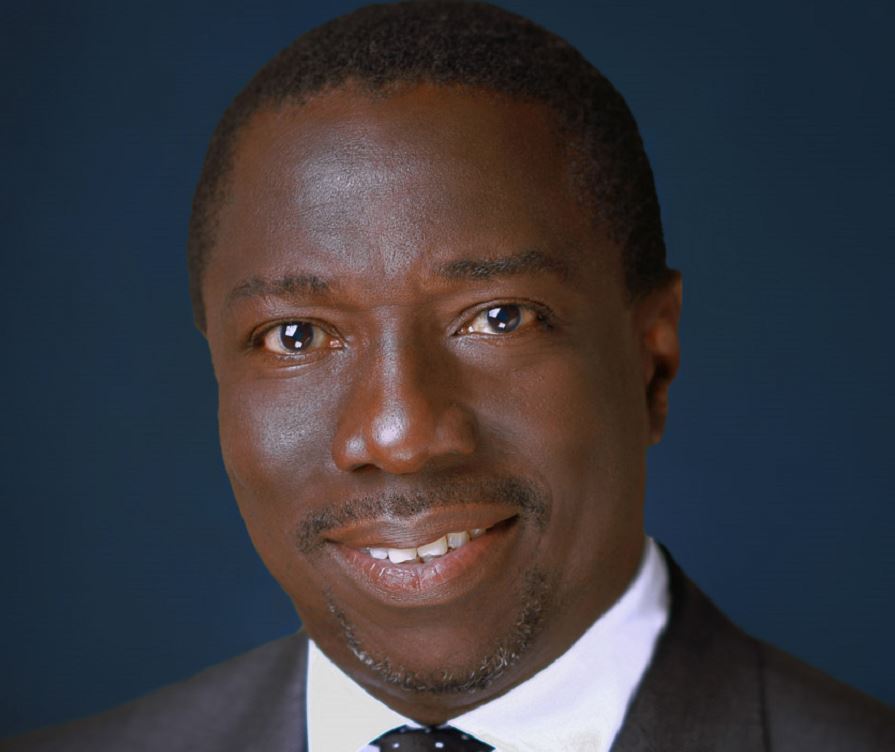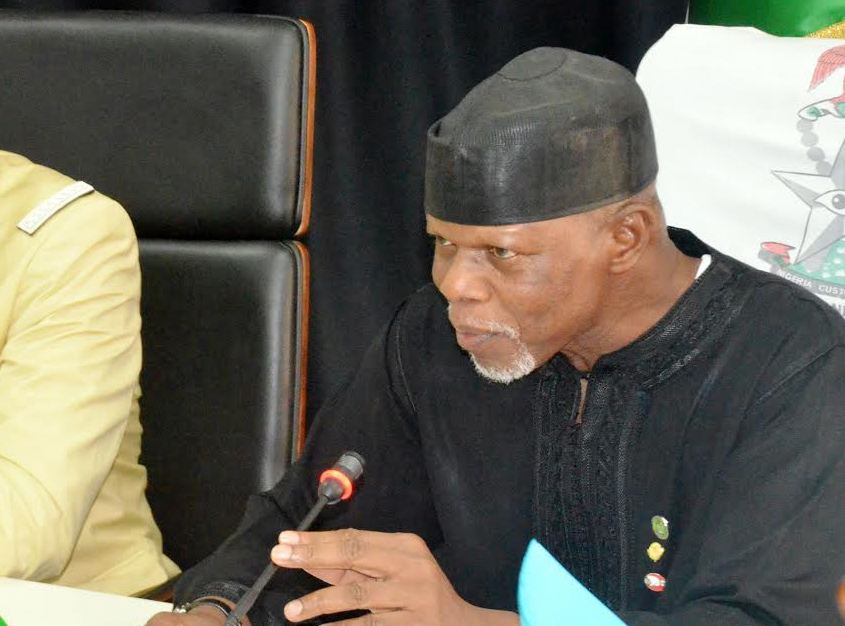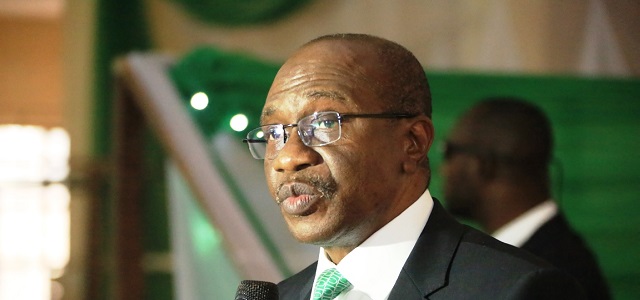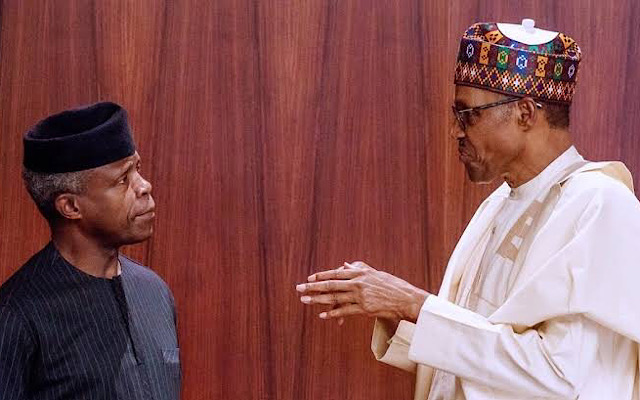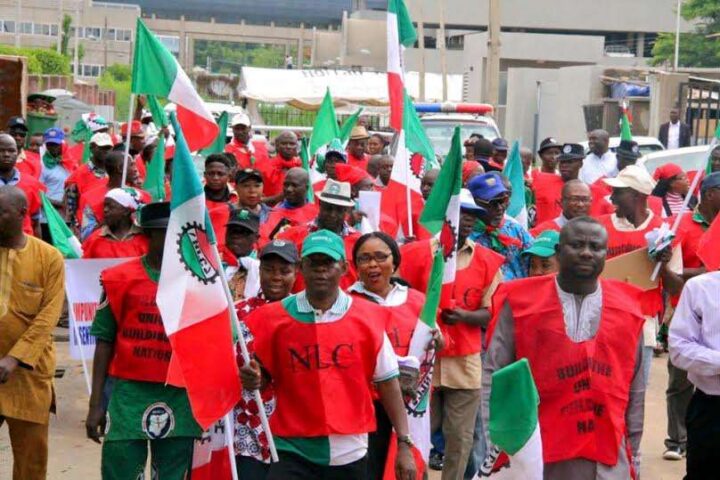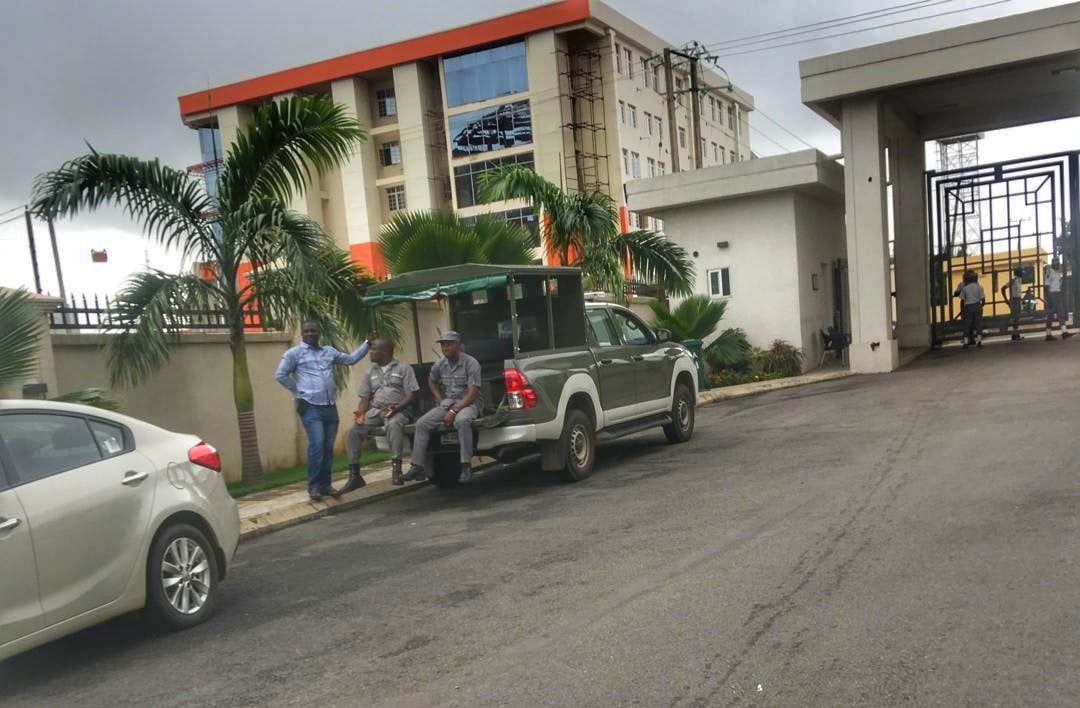The Nigeria Economic Summit Group (NESG) has been engaging with different governments to promote sustainable development since it was founded in 1993. While the spotlight has been put on the president and his appointees, Asue Ighodalo, NESG chairman, tells TheCable that governors have a role to play in developing Nigeria.
TheCable: President Mohammadu Buhari recently constituted an economic advisory council. Do you think the set of economists he has assembled can make any difference from what we have seen in the past four years?
Ighodalo: Yes, there must be a reason why Mr. President decided to have the advisory council at this time. You know historically, most presidents are able to reflect on what they did in the first time when they come into their second term and how they can do better. They also begin to think about their legacy. I was involved in a group and I spent two years with Mr President where we talked about the economy and private sector. So I think Mr President is trying to ensure that he leaves a strong economy behind after his four years. And that is why he has called on seasoned economists. It is a powerful and great team of economists. People have said will Mr President listen, I think he will. You know it is the prerogative of every leader to determine the advice they take, so their role is to analyse, sit with him, advise him and tell him why. His role is to look at the big picture and to determine what he thinks is in the best interest. So I think it is a good first step and I think if the council stays focused and do what they need to do for the people of Nigeria, it will be a great thing.
TheCable: Regarding the economy, what do you think we ought to be doing as a nation that we are not doing presently?
Advertisement
Ighodalo: Nigeria, even from where I sit, is a slightly complex country and sometimes if you are not in leadership, sitting down with other leaders, you don’t get to see the full picture. Sometimes, I like giving leadership the benefit of doubt because I have been close to many leaders over the years and I know many leaders, particularly at the presidential level mean well. There is no leader that has gone into governance to make the people worse off or suffer more. No, they all mean well and they want to leave a good legacy. Now, how it is done is different.
Part of the problem we have had in Nigeria has been the issue of effective implementation and there are many reasons for that. People blame civil servants but if you go back historically, you will see that there was a time that civil servants were dealt with in a way that made them start losing proper self-esteem. If you go back to the 1975 retirement of civil servants, the best of civil servants were summarily dismissed from the civil service. That caused a major disaffection of more civil servants at that time. And there is no government that will work well if your civil servants are not motivated.
If you look at 1975, I think a permanent secretary then earned about N14,000 per annum. N14,000 in those days was about $16,000 dollars. So today, compare what a permanent secretary earns. So what is the motivation for the civil service? For you to get an effective support system, they need to be well trained, well-motivated, trusted and listened to. We have a civil service that is not fit for purpose because of historical issues, so even when you have politicians and leaders who have great programmes, great ideas, the capability to implement and deliver is not that strong as it should be. So I remember when my friend, Nasir El-Rufai, was in the FCT, he worked with minimal civil servants. I told him at the time that that is not the answer as not everybody can work without civil servants, and he did very well in the FCT, extremely well. But it is not everybody that can work without civil servants.
Advertisement
So what I think we should do is we look into the civil service, motivate the civil service, train the civil service, make them fit for purpose, and it will be easier for the politicians to implement their programmes. That is number one when you talk about things we are not doing well. I also think that we also need to engage the private sector a lot more from the perspective of creating an enabling environment. Patient capital only flows to where it is welcome. If you look at the total government revenue, it cannot meet our needs, so money from somewhere else has to make up. Now, where is that somewhere else? It must come from internal savings, internal investments and external. So for people to put their money here, it must be worth their while. They are not charity, we still have a few charity that brings their money, but for those who put their real money here, they need to make some profit on it, they need to know that the environment will allow the money to grow, so government should try and work harder. I know the government has been looking at it, but I think the government needs to create an enabling environment where anybody that brings his or her investment to the environment feels secure and safe and they know that investment is safe. They also know that they won’t return if they reap proper returns from those investments. So the government can then focus on those things that are real social issues for the real poor people and create the inclusive economy that we need and private sector money will flow into other areas of infrastructure like roads, creating jobs.
If you look at it, the Nigerian excel when he goes outside Nigeria. I have immense optimism and faith in the Nigerian capability to turn the country around. China did it, other countries did it, we can do it.
TheCable: What do you think is making the private sector lag behind in terms of investments?
Ighodalo: There are two things; internal and external. There are those things that are internal to the private sector to itself. The private sector itself needs to kind of drag itself by the bootstraps and focus. I tell people everywhere I have the opportunity to speak that the private sector has a major role to play in the development of this country. So people that run businesses, no matter how big or how small, should run their business extremely well. They should be cost-efficient, they should train their people and businesses should be properly governed and you should look at growing your business, so it becomes a big town business, a big state business, a big country business. It should be a big African business, it should be driven, it should be focused. So if in our own areas, we are doing excellently well, we train our people and keep our best people, then you will see an aggregation of great companies, institutions. Anywhere in the world, companies start small, then the business multiples, that is how economies get built. That is how productivity is stronger and that is how our GDP grows. So my talk and my comment to the private sector every time is that the private sector needs to be focused. So train your people, support them and then incentivize them, build your company, make them part of the business and then remunerate them properly. So the businesses grow, the businesses multiply and we have a lot more Dangotes and we have a lot more big companies. It is in my lifetime that we have a GTB, Zenith, Dangote. So imagine if we replicated 20 or 30 of those, imagine all the people that would have been employed, all the lives that would have been touched.
Advertisement
Second thing, the government needs to create an avenue apart from the enabling environment, where we can find easier capital. I know the central bank has a lot of intervention fund that it is trying to do, but I think we should spread around a bit so it is easier for them to access. So that when you are starting at a lower level, whether you go to BOI or Bank of Commerce, you are able to access. And you are able to identify people that will genuinely use the capital that comes to them and find a way to ensure that they pack back that capital. I ran a scheme in my village a few years ago, where I gave N150,000 to a few market women and it was a no brainer, they went to multiply their businesses, gave me my money back and at the end of the day, I gave the money back to them to continue with their businesses. There are a few things the government needs to do, but on the other hand, there are many things that we also need to do in the private sector and we need to collaborate and work together. At NESG, our work is to speak with the government, supporting government, researching, providing data and talking, so that we all can have a better economy.
TheCable: Do you think the government is doing enough in the area of domestic revenue mobilisation?
Ighodalo: I think the government truly wants to jack up revenue base and government is doing as much as it can at this point in time but the way I see things is that if you don’t make a bigger cake, you are not able to cut out bigger piece and what many Nigerians should start looking out is how we are going to bake a bigger cake so that we can all have bigger pieces. We need to widen the scope of the economy so that the base for revenue collection is much wider. There are many ways by which we can do it and one of the things I said is that we should build a bigger, stronger, more viable economy. Let us make it easy for people to want to do businesses in Nigeria, and then we widen the base. Once we widen the base, it is easier for you to then mobilize revenue at the domestic level. We need to support businesses, there is no other way out. There is no economy that has been built where businesses haven’t grown in every level.
I am the chairman of a manufacturing company we have had a nightmare trying to clear our things from the port. So turn around cycles that are probably five to six days before is now one or two months, imagine what that does to our economy. See what it has also done to the value of properties in Apapa. We haven’t even calculated all of that, so those are the things we need to focus on because I was quite disappointed that we didn’t resolve the Apapa port issue faster and because the problems were not problems that are not resolvable. So sometimes I think the response time is not as great as it should be, we’re not responding as fast as we should to things that come up.
Advertisement
In 2001, I was appointed during President Obasanjo’s government to the Power Implementation Reform Committee. Our first chairman was Chief Bola Ige, then Minister of Power, then our next chairman was Chief Agagu. We had in that committee, Nasir El-Rufai, Liyel Imoke was NEPA chairman then, minister of power. We were looking at the totality of Nigeria’s power problem. Then we came out with a power policy for Nigeria and we also came out with the draft of this new law. What was the issue again, full implementation of this new law. Hard work is there so if you go through any ministry and you dig up old files, the same recommendations that could have solved that problem are in place, it’s just the implementation, the facility to implement them, the ability to implement them. So we just need to take a seat back and ask ourselves, what we really want.
TheCable: The NESG launched a report on taxation in the first quarter of this year, what were the recommendations and how are you working with the government to ensure that it is implemented?
Advertisement
Ighodalo: We are still working on it because we have a fiscal commission and we are working with government and some foundations, but the work isn’t complete. We know that we need to raise the tax base. We also need to look into certain areas; those things that if we increase tax may affect consumption, investment and those areas in which we think if we increase tax, they will be more revenue positive than consumption negative. So, we are still working on it and we haven’t come out with a full answer. When we complete the work, we would make it public.
TheCable: If you look at some of NEITI’s report, you will notice that a lot of the states cannot survive on their internally generated revenue alone, they are unable to pay salaries and the standard of living in those states have remained low. How do you think they can overcome this challenge?
Advertisement
Ighodalo: I have never been a chief executive of a state before, so I really don’t know all the problems that chief executives face, but from where I sit, I can say a few things. If you look at some states today, let us take a state like Kebbi state, I know a bit about what is happening there, Governor Bagudu is my friend and I have paid attention to the activities of my bank, Sterling bank, in Kebbi state. I think the governor and his cabinet would have asked where do we have a comparative advantage. We are not going to sit down and wait for Abuja to bring money. So what can we do? Rice, agriculture and he focused on it. Regardless of what anybody says, the rice revolution in Kebbi state is real.
If you go to Kaduna state, despite the occasional threats, there is an industrial revolution going on and there is a focus on education. If you go to my state, Edo, since Governor Oshionhole’s investment in infrastructure and a continuation by Obaseki, who also is my very good friend, there has been a continuation regardless of what the political issue people are talking about. In five years time, both Edo and Kaduna will have highly literate children getting ready to become a workforce. People will start picking their workforce from those two states very soon.
Advertisement
I suspect a few more governors will start copying those two governors because of peer pressure. I hear about the things Governor Makinde is doing in Oyo state, I don’t know him personally but I hear reports. So if you have 10 states who are running at that pace, who can develop revenue for themselves using comparative advantages that they have, there will be peer pressure on those governors who are not doing very well. I also say Nigeria will develop from its sub-sovereigns. If the sub-sovereigns develop properly and strongly, the country will develop properly and strongly.
If you look historically at Nigeria, it is unfortunate that we have the problem of the 1960s, and got derailed by civil war and military takeover. But if you look at it, the western region was ahead economically and politically, possibly through their introduction to western education before the rest of the country. But between 151 and 1960, free education, the first TV station in Africa, universities, all of the infrastructure, what was the response from the east and the north. They too did education for their people, television stations, universities, industrial parks. If we had continued at that pace in the 60s, Nigeria would have been a first world country today.
So if we come back today through peer pressure and those days for sharing FAC money are gone. People are becoming more inquisitive, they are asking more questions, so at the state level, I hope it brings peer pressure and more focused people who know that they have to deliver to the people, and they will be called to account.
We would have development at the sub-sovereign levels which will aggregate into sovereign. And I think it will be good for the federal government, so the federal government should truly support what is happening at the sub-sovereigns and there should be some ranking for governors, just like being in class. It is evolving slowly and that is why I remain optimistic, the crop of governors we have now are better than the ones we had before. There is an improvement and I hope that improvement affects the legislatures. What I just need is that Nigerians themselves should force government accountability.
TheCable: The recently NESG recently unveiled a new brand. What inspired that?
Ighodalo: We had an identity logo created in 1996, at the time, we were Nigeriacentric. We are having the 25th, technically the 26th, because it started in 1993 but it is 25th summit because we missed one year. So we felt it was a time to take stock. To sit back and say where are we and where do we want to go. So I knew the logo reflects where we want to go. If you look clearly, you will see that there is some disguised map of Africa there, so it shows our intention.
Our intention is to be the foremost think-tank in Africa and one of the foremost think-tanks in the world to focus on growing and supporting the growth of economies of Africa and also contributing our quota to speaking about the development in Africa at the world stage. We are going to be the foremost think-tank and research institute. We are spending a lot on strengthening our research capacity so that we are in a position to sit with the government and talk to government and we would then translate that to sitting with the government in Africa and talking to them. We are talking to some state governments, federal government and governments outside Nigeria, including internationally.
So we want to step on the world, but our focus will remain Nigeria to support the process of moving Nigeria to the first world, but then we would also engage with international players. We are strongly at the WEF level, Africa WEF and international WEF. And we are involved in a lot of international donor agencies like Bill and Melinda Gates Foundation, Ford Foundation, and they are supporting us. We are very active in what is happening in the north-east and we are supporting the humanitarian needs.
The issue is we are not just Nigeria-centric anymore we are looking at it from a bigger stage. And also if you look further in the logo, you will see something around knowledge, which also shows that we are focused more on research. So we are an advocacy unit, a research unit, an engaging unit and our role is to support the government at every level to do better, and we will continue engaging them. People have accused us of being a talk shop and we smile. If you don’t keep talking, keep engaging, keep persuading because you are not the politician, somebody won the election on some manifesto. If you want to get them to change direction into an area you think will be better for the country, you have to engage. When people know you don’t have an agenda and your agenda is a better Nigeria, they will listen to you. Sometimes people get the feeling that the government doesn’t like business people, I don’t think so. I think it is just that sometimes when the seat where they are, they have had their advantage on what some business people have done, they then say this is not the way an economy should grow. But I say to them that they should not throw away the baby with the bathwater, the majority, 95% of the Nigerian business person is hardworking, focused, honest, doesn’t want to take advantage, they just want to do their best.
TheCable: What policies or recommendations of the NESG have been adopted by the government over the years?
Ighodalo: The leaders must take the glory. All I can say is that there are certain things that we suggested to government and over time we see them in policy, whether it was because we suggested it or because they knew about it, we are glad that it has become policy. So for instance, if you look at the telecoms revolution, you look privatisation, the attempt of power reform, an attempt at energy reform, oil and gas reform, the time to broaden the tax base. There are many things over the last 25 years that we have been talking about and after we talked a while, some of those things found themselves into policy and law. So we are not laying total claim to be the proponents and advocates of those things, but we are glad that that is one of the things we have talked about over the years. If you look at our first green book, you will see the similarity in some of our recommendations and some government policies. We are not interested in taking the glory, we are interested in making sure that things we recommend, things we suggest, things we beg, get done.
In the last five to six years, we have also been working with the legislature, our focus and goal here were working with legislature to ensure that laws that will create an enabling environment and will help businesses are enacted. So we have worked with the national assembly and the NBA in that regard. Some of those laws have seen the light of the day, others are awaiting assent. Ours is to stay under the radar and support the process. If our support yields fruit then let somebody else take the accolade. We are not in the business of taking accolade we are in the business of making sure that we build a viable economy.
TheCable: But why did you choose, “Nigeria 2050: Shifting Gears,” as the theme for the 2019 Nigeria Economic Summit? Does the NESG want to set an agenda for the government with this year’s summit?
TheCable: We are not setting an agenda for the government. What we are doing is to engage to start the process of a conversation to help put in place a long-term development for the country. We just want to start a conversation that we think, especially if you look at it from vision 2020 terminates at the end of 2020, ERGP terminates at the end of 2020. So we think it is a good time to start looking at a holistic development plan for Nigeria. Where do we want to be in 2050? Let us look at those that are in the top, where will they be in 2050, how do we get to whether they are in 2050?
Those are the things Nigerians should think of, not what Nigeria should be at its current rate of development in 2050. It is where those who are in the first world would be in 2050 and how would Nigeria plan to be there. People have said we have the plans before but it didn’t work well. True, but that doesn’t mean we should stop. We think that we can try again and we see the ingredient of focus for these plans to work well.
Everybody is tired of Nigeria being a third world country especially when we have the resources and the capacity to be a first-world country. People that are not as capacitated as we are in the first world. Our focus is to have plans that will be in periods rolling of 5 years. So after five years, we ask what have we achieved? We take stock. Do another 5 years, take stock. And if you look back historically, in the early 60s, late 50s, we always had development plans in Nigeria and it helped for the initial development of Nigeria. So we think it is a good time to just initiate the conversation and try to create the template for what a development plan should look like for Nigeria if Nigeria wants to be a first-world country in 2050. So we are just starting a conversation and we are hoping that the government will take and own the conversation.
TheCable: What are your thoughts on the exodus of youth from the country?
Ighodalo: We have children who are not as resilient as some of us in the early days and if they have the intellectual capacity to be world citizens, it is easy for capacity to also flow to where it is needed and where it is most appreciated and where it can generate the best capital and best revenue for itself. That is what we see happening. We see our best and brightest children flowing towards an economy that they think will appreciate them, remunerate them, provide security for them and provide great education for their kids. So how do we reverse that? The only way we can reverse that is to create a competitive environment here.
For instance the savings we have mobilized with the pension space, should we find a way for some of the money to come into mortgaging, infrastructure, consumer finance, so the young person can then buy a house. You can then mortgage it, provide finances for yourself to invest in other areas, so your revenue-generating capacity as a person increases and you become more economically strong.
So we need to create an environment where they all want to come back and it is everybody’s responsibility. I don’t place fault or responsibility in one area, we can’t all just look at President Muhammadu Buhari and say he is a problem. We all have a role to play. We need to give our children hope. We need to let them know that there is a future in this environment and this economy will grow. If we have an economy growing at 2% and we have a population growth of 3% that is negative. If this economy was growing at 7, 8, 9% or double-digit, these kids won’t go anywhere because they will see the future. So we need to do those things that will make the economy grow at double digits.

